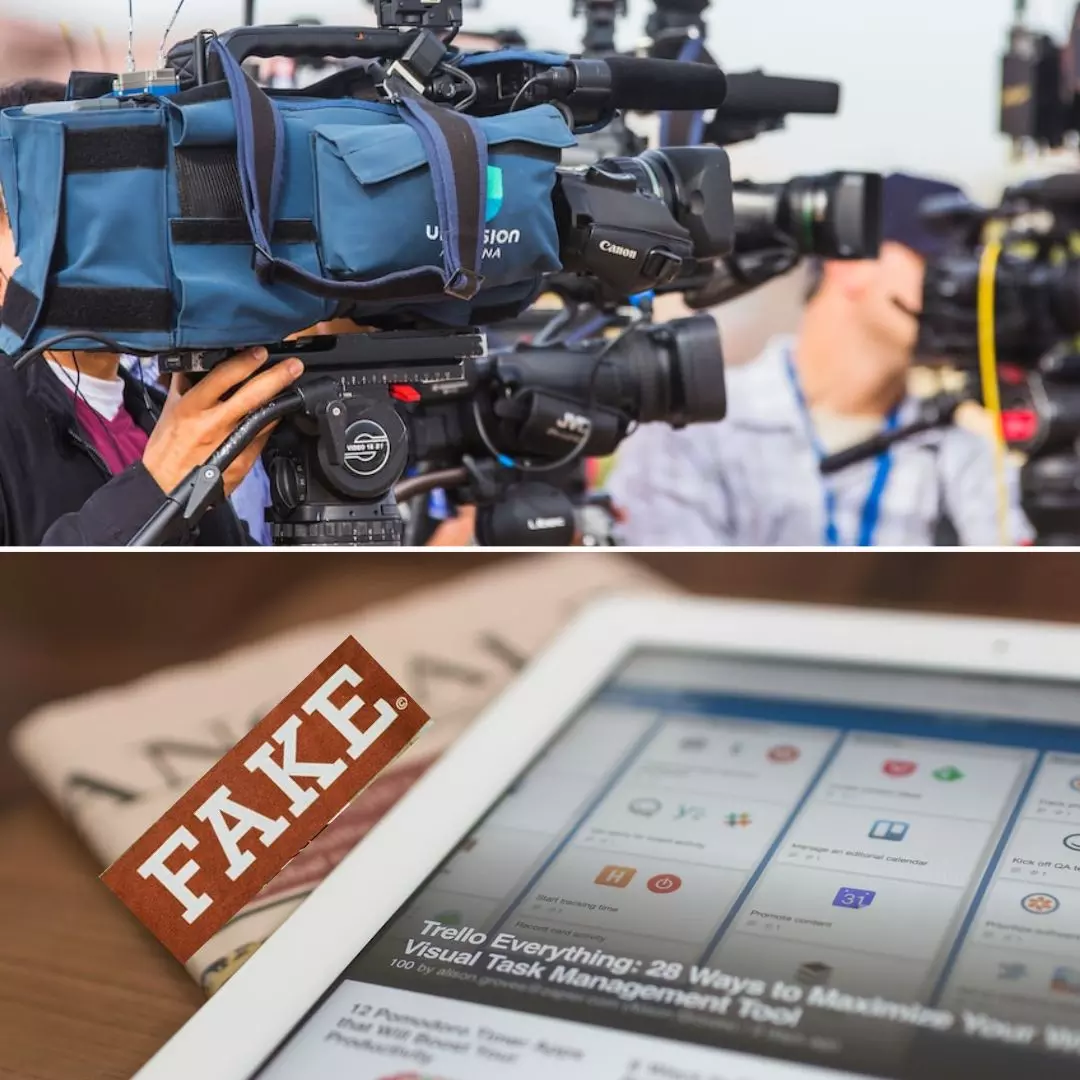Fact-Checking Press Freedom! Editor's Guild Expresses Concern Over Centre's Proposal To Amend IT Rules
Writer: Laxmi Mohan Kumar
She is an aspiring journalist in the process of learning and unlearning many things. Always up for discussions on everything from popular culture to politics.
India, 20 Jan 2023 12:30 PM GMT
Editor : Jayali Wavhal |
She writes about gender issues, human interest, and environment.
Creatives : Laxmi Mohan Kumar
She is an aspiring journalist in the process of learning and unlearning many things. Always up for discussions on everything from popular culture to politics.
The proposed draft enables the Press Information Bureau or any other government-authorised agency to take down any content or news that they believe is fake.
The Editors Guild of India expressed their concern and dissonance with a draft proposal introduced by the Union Information Technology Ministry on January 17. The proposal brought to the table would amend the Information Technology Rules (2021) in a way such that online platforms could take down any content identified "fake" by the Press Information Bureau or any other government-authorised agency for fact-checking. In a statement published by the Editor's Guild, they conveyed that the move would pose a severe threat to the free press in the country and could take down and censor any form of news identified as fake by the government.
Fourth Pillar Of Democracy Slowly
Media, described as the fourth pillar of democracy, has been constantly under the radar of every changing governments. With the emergence of digital media, news began evolving into forms of citizen journalism, independent journalism, to even biased portals. All these, however, enabled a vast space of information for readers and engaged them in active discussions.
Social media platforms even flagged some of the news which was found to be fake with a disclaimer to the reader that the content includes information that could be fake. This pattern was especially noted during the pandemic when several groups spread different opinions regarding vaccinations and Covid-19. The disclaimers that popped up right before the content was shown also added links that could redirect the reader to authentic information provided by the government.
However, the Press Information Bureau and other government agencies gradually took it upon themselves to completely ban portals that allegedly contained fake information. With the title "Government of India strikes den of misinformation on Youtube," the Press Information Bureau (PIB) informed people that hundreds of Youtube channels had been banned over the years by the bureau for propagating misinformation. From disclaimers informing people of the content they were consuming to entirely banning access to such content, the government placed a sort of autonomy in the consumption of content.
The recent proposal to amend the IT Act would enable PIB to take down content that the government thinks is fake. With this, the Guild believes that press freedom will be placed at stake based on the government's whims and fancy. In the statement, the Guild conveyed, "Already multiple laws exist to deal with content that is found to be factually incorrect. This new procedure basically serves to make it easier to muzzle the free press…to force online intermediaries to take down content that the government may find problematic."
The new amendment could also stifle legitimate criticism against the government and potentially bring an echo chamber that praises the government. This form of reporting would ultimately undermine honest journalism and adversely impact the press's ability to hold governments accountable. With these reasonings in place, the Guild urged the Ministry to initiate consultations with respective press bodies, media organisations, and other stakeholders on the regulatory framework for digital media, to not undermine press freedom in the country.
EGI is deeply concerned by amendment to IT Rules 2021 made by MEITY, giving authority to PIB to determine veracity of news reports, and directing online intermediaries and social media platforms to take down content deemed as ‘fake’. Guild feels this is akin to censorship. pic.twitter.com/uy49cOwTcT
— Editors Guild of India (@IndEditorsGuild) January 18, 2023
PIB'S Fact-Checking Over The Years
The government and social media platforms have been in a tussle over the past few years due to the blatant censorship imposed. Following the multiple warnings regarding spreading misinformation, the PIB set up a fact-checking unit in 2019 which pointed out fake news. However, the fact-checking department faced severe criticism for issuing denials to news articles that were particularly critical of the government.
In April 2020, the Caravan alleged that a national task force on Covid-19 had not met even once in the week before Prime Minister Narendra Modi announced the second lockdown. According to a report by the Scroll, the fact-checking unit flagged the report as "false and baseless." Following the PIB claims, reporter Vidya Krishnan urged PIB to share minutes of the task force's meeting to back up their claims, but she did not receive any.
On December 16, 2020, PIB claimed that an Intelligence Bureau recruitment circular being shared online was fake. However, the Ministry of Information and Broadcasting informed the next day that the circular was genuine, after which PIB deleted its tweet. Similarly, the unit had declared a directive from the Uttar Pradesh Special Task Force as fake on June 2020. The directive had the force asking their personnel to delete 52 Chinese applications from their phones for security reasons. Later, the Special Task Force's Inspector General Amitabh Yash clarified with the media houses that the advisory was genuine.
Also Read: On National Press Day: Know Who Termed Media As Fourth Estate & How India Eulogised It Over Years
 All section
All section















